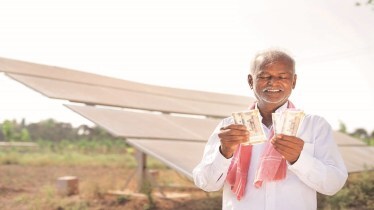In his 2015 book, Hubris: Why Economists Failed to Predict the Crisis and How to Avoid the Next One, Meghnad Desai had this to say: Economics, or rather ‘political economy’, as the discipline was originally called, developed as an intellectual attempt at understanding the way goods and services are produced, traded and consumed, and incomes are generated and distributed. It was a study of the practical world.
Yet, in seeking to be regarded a ‘science’, economics not only became far too mathematical in exposition but also mechanical in its understanding and interpretation of human behaviour and social organisation. Relevance to an understanding of the real world was sacrificed at the altar of technique.
Also read: Holi 2023 Horoscope: Holi rituals according to astrology; Here’s what you should and shouldn’t do
Desai’s latest book, The Poverty of Economics: How Economics Abandoned the Poor, builds on that theme to establish his central point that the discipline of economics has kept the interests of the poor at the periphery. In some way, it is self-criticism as well, as the author is a noted economist himself. The foreword of this remarkable book makes the central theme very clear: “Much of what passes for economic policy thinking is invariably and almost casually hostile to the poor.”
The book tries to answer the question on how this happened by taking a critical look at the bodies of thought that have driven economics across the world and its contributions to domestic and international politics. The author is an admirer of Adam Smith, whom he found to be a man of “universal sympathy”, especially for the poor at home or slaves in the colonies abroad. Smith, the author says, is perhaps more aligned by those who claim to champion him as a pro-business, anti-worker ogre.
The rot set in, Desai says, when his successors David Ricardo and Thomas Malthus turned Smith’s philosophical inquiry into a science with laws of mathematical certainty. The book brings out the author’s fondness for Arthur Cecil Pigou who pioneered the study of welfare economics. We know from Desai’s book how Pigou crafted a classic, first as Wealth and Welfare published in 1912 and expanded into The Economics of Welfare (EW), which went through multiple editions between 1920 and 1932.
Also read: Poor sleep may lead to heart diseases and premature death
Pigou openly stated in EW that the principal question in economics was to argue for a redistribution of the national dividend from the rich to the poor. This radical principle of judging economic welfare of a nation has not yet been adopted, Desai argues. Nations boast about their total gross domestic product or their per capita income. No country qualifies the measure as Pigou does.
But Pigou never got his due. That’s because a certain John Maynard Keynes happened, who launched his own, much more influential version of a ‘new economics’. Keynes’ ideas were to dominate the worlds of academia, as well as policy making for the next few decades.
The book, most suitable for students of economics, asks necessary questions on how changes in the international order have affected the making of economies and how to reinvent the way economic policies are formed in the aftermath of Covid-19. The author’s “distillation of a lifetime’s thinking and debating about economics” is worth a read as he looks at fundamental and radical questions posed by the pandemic.
Desai argues economics has been for too long soft on the well-to-do and hard on the poor, and the time has come to overturn this bias. So, the book traces how it was the struggle for universal franchise which made economics more oriented towards the poor. But that legacy of Pigou has been lost in the debates about Keynes and Monetarism. The book is his way of revisiting the economics of redistribution for the twenty-first century.
In many ways, The Poverty of Political Economy is a reflection of Desai’s oft-repeated view that the tradition in economics has been to reduce poverty to some number or the minimum amount which a poor person needs for eating food. Or simply, what is the minimum we can get away with by paying the poor, as all they have to do is eat and there is no other function for which money needs to be paid to the poor.
The author talks in detail about the 2008 financial crisis and how the drastic cure led to restoration of the economy but further impoverished the poor. In a brutal criticism of the US Federal Reserve, Desai says, “The Fed was the US cavalry to save the poor rich, the bankrupt bankers, the hopeless corporate leaders who lined up with their posh begging bowls. No penny was spared. Giving away money to the rich has always been sound fiscal policy in the Ricardo-Malthus political economy. Every cut in the income or corporation tax inevitably is promised to be good for the economy. Any extra penny for the poor is ruinous.” Many would perhaps dismiss this as an extreme view but it’s an interesting point that needs careful deliberation.
But no one—absolutely no one—can disagree with the book’s main point about the urgent need for construction of a humane political economy—something that the pandemic has taught us. Desai’s biggest disappointment is that those 50 years of Keynesian policy as implemented failed to improve income distribution in favour of the poor. And one should read the book for this insight alone.
The Poverty of Political Economy: How Economics Abandoned the Poor
Meghnad Desai
HarperCollins
Pp 285, Rs 799
